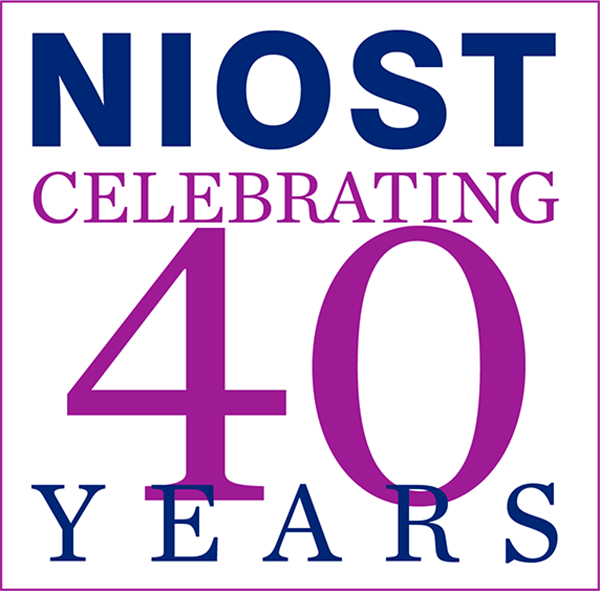Julie A. Dennehy Projects
Julie A. Dennehy
BOKS Longitudinal Evaluation
Technical Assistance, Next Generation Afterschool System Building Initiative
A Program Assessment System (APAS) Project
Program Practices: An Investigation of Physical Activity and Healthy Eating Standards and PracticesProgram Practices: An Investigation of
Physical Activity and Healthy Eating Standards
and Practices in Out-of-School Time ProgramsCompleted in 2011
Principal Investigator: Georgia Hall, Ph.D.
Co-Principal Investigator: Jean Wiecha, Ph.D.
Team Members: Georgia Hall, Ph.D., Jean Wiecha, Ph.D. (University of Massachusetts), Ellen Gannett, M.Ed., Barbara Roth (YMCA of the USA), Julie Dennehy, M.M., Diane Gruber, M.A.Background
 Energy balance and appropriate physical activity are critical to preventing obesity and associated cardiometabolic morbidity. In the United States, 6.5 million children attend out-of-school time programs annually, participating in roughly 3 hours per day of activities typically including homework, snack, and gross motor play. If out-of-school time programs can provide appropriate snack and physical activity choices, they can be an important component of the campaign against childhood obesity. There is a window of opportunity to infuse more rigorous content and provide guidance and language in the National Afterschool Association standards for physical activity and healthy eating.
Energy balance and appropriate physical activity are critical to preventing obesity and associated cardiometabolic morbidity. In the United States, 6.5 million children attend out-of-school time programs annually, participating in roughly 3 hours per day of activities typically including homework, snack, and gross motor play. If out-of-school time programs can provide appropriate snack and physical activity choices, they can be an important component of the campaign against childhood obesity. There is a window of opportunity to infuse more rigorous content and provide guidance and language in the National Afterschool Association standards for physical activity and healthy eating.Specific Aims
- To build capacity for childhood obesity prevention in OST by infusing rigorous science-based standards and guidelines into NAA standards for physical activity and healthy eating
- Identify current physical activity and healthy eating standards used in a targeted national sample of OST programs
- Identify current program practices in these areas
- Identify statistically significant associations between best practices and program characteristics, components, and social contextual variables
- Disseminate information on effective implementation of high quality standards, through a comprehensive report, study briefs, and presentations at national conferences.
- Lay the groundwork for a subsequent Phase 2 project to re-assess the program cohort and develop a tool kit to help all OST programs implement the rigorous science-based standards for physical activity and healthy eating.
Methods
 This is a mixed-methods research study using a sequence of quantitative and qualitative data collection methods and multiple regression modeling to examine program characteristics associated with providing healthy eating and physical activity opportunities in a national sample of out-of-school time programs. Effective practice will be operationalized through the application of a field-tested research-based survey reflecting current standards and guidelines established through expert sources such as the Center for Disease Control and Prevention and the National Academy of Science - Institute of Medicine. Data will be collected in ten regions representing a mix of geographic locations, urban/suburban/rural communities, school district sizes, and variety of out-of-school time programs. The sampling frame will be comprised of programs with diverse demographic school district profiles and large percentage of students eligible for free/reduced lunch. The survey sample will include 80-100 programs within each region (500+ total) and Exemplary Program Observations at 30 of these programs.
This is a mixed-methods research study using a sequence of quantitative and qualitative data collection methods and multiple regression modeling to examine program characteristics associated with providing healthy eating and physical activity opportunities in a national sample of out-of-school time programs. Effective practice will be operationalized through the application of a field-tested research-based survey reflecting current standards and guidelines established through expert sources such as the Center for Disease Control and Prevention and the National Academy of Science - Institute of Medicine. Data will be collected in ten regions representing a mix of geographic locations, urban/suburban/rural communities, school district sizes, and variety of out-of-school time programs. The sampling frame will be comprised of programs with diverse demographic school district profiles and large percentage of students eligible for free/reduced lunch. The survey sample will include 80-100 programs within each region (500+ total) and Exemplary Program Observations at 30 of these programs.
Healthy Out-of-School Time: Related Resources (HOST)
Massachusetts Afterschool Research Study (MARS)Massachusetts Afterschool Research Study (MARS)
Completed in 2005
Project Director: Joyce Shortt
The Massachusetts Afterschool Research Study (MARS) is a statewide study examining the links between afterschool program quality and student outcomes, and the efficacy of various models of afterschool for youth. United Way of Massachusetts Bay is collaborating with the Massachusetts Department of Education and the Massachusetts Office of Child Care Services to manage the study, which will be conducted by the National Institute on Out-of-School Time (NIOST) at the Wellesley Centers for Women, Wellesley College, in partnership with the Intercultural Center for Research in Education (INCRE).
MARS aims to create consensus around the elements of program quality, features, and participation that contribute to positive outcomes for youth, so that funders, providers, advocates, and policy-makers are better prepared to expand the quality and availability of afterschool programs. Public and private funders will have the information they need to focus resources on effective program elements; providers will be able to make ongoing quality improvements; and policy-makers will have a reliable foundation on which to base their commitment to afterschool.



